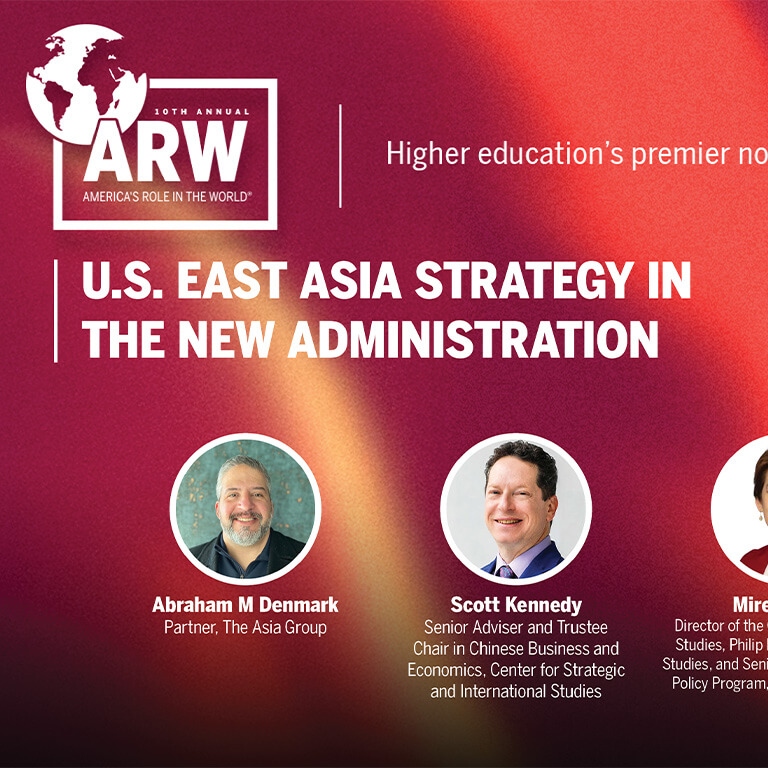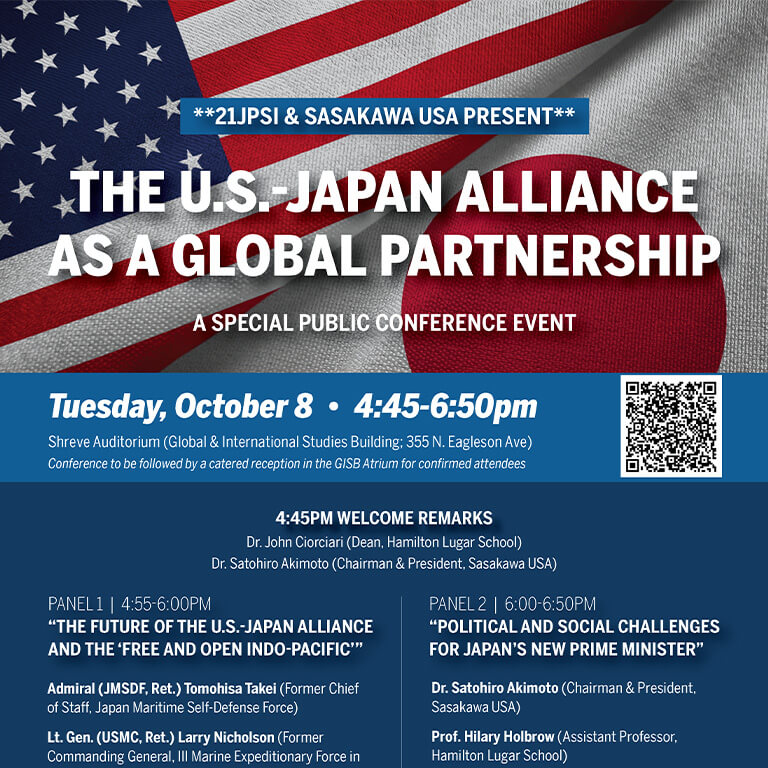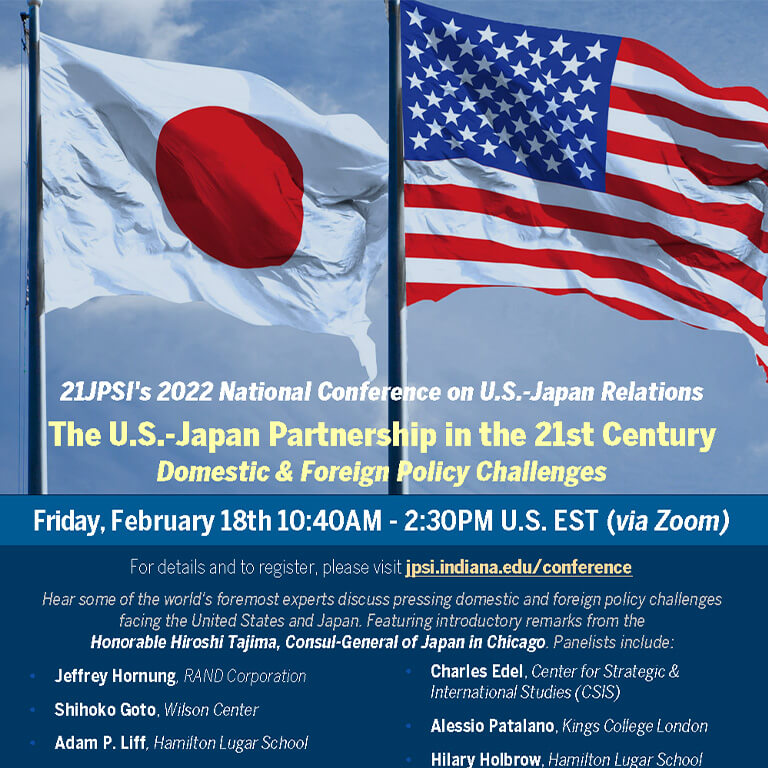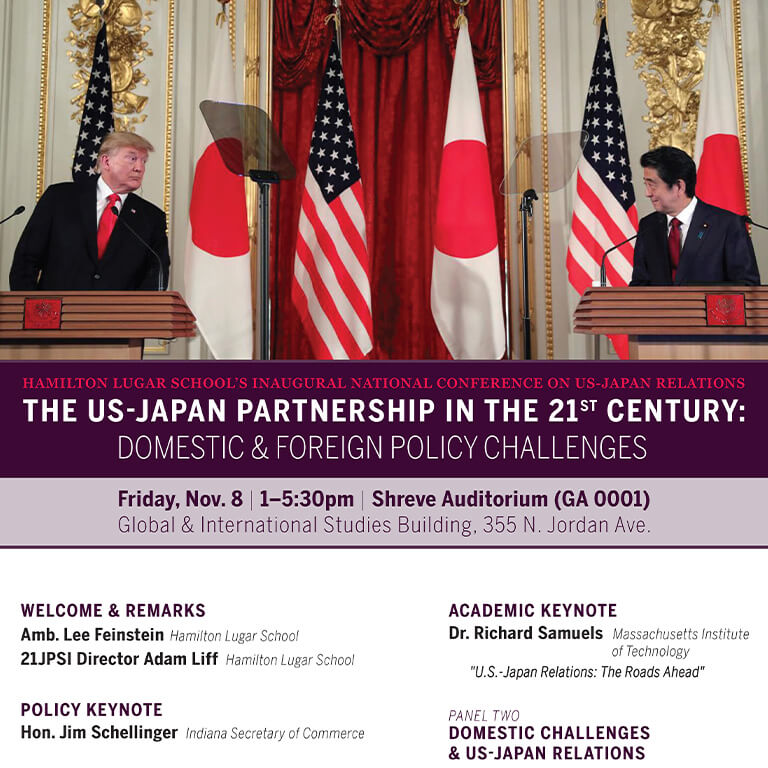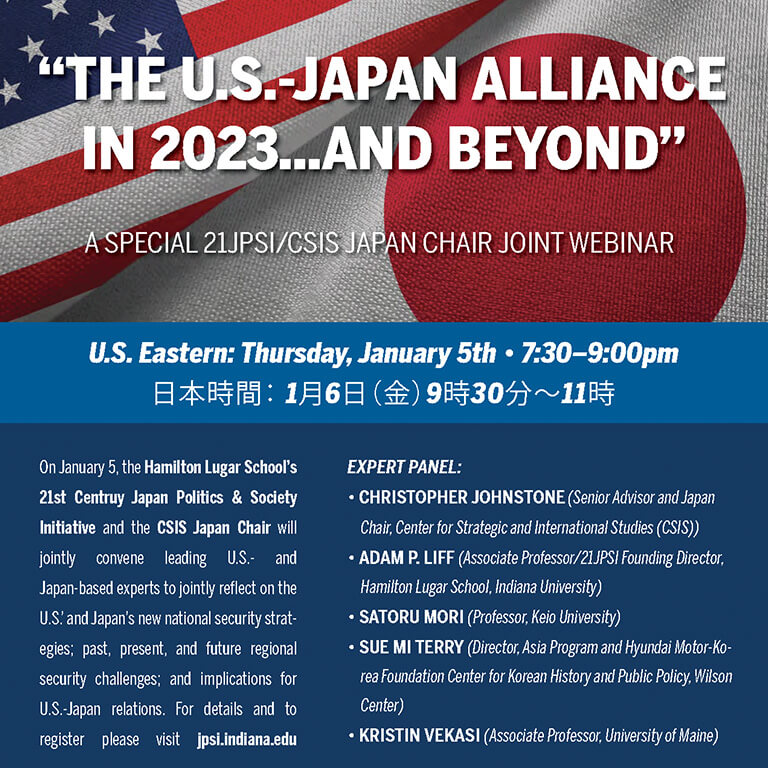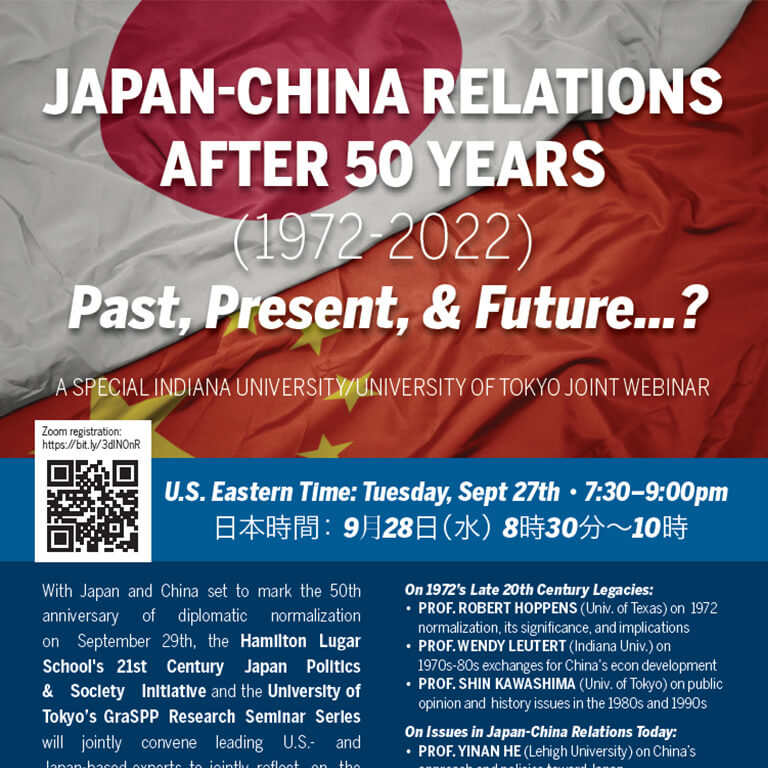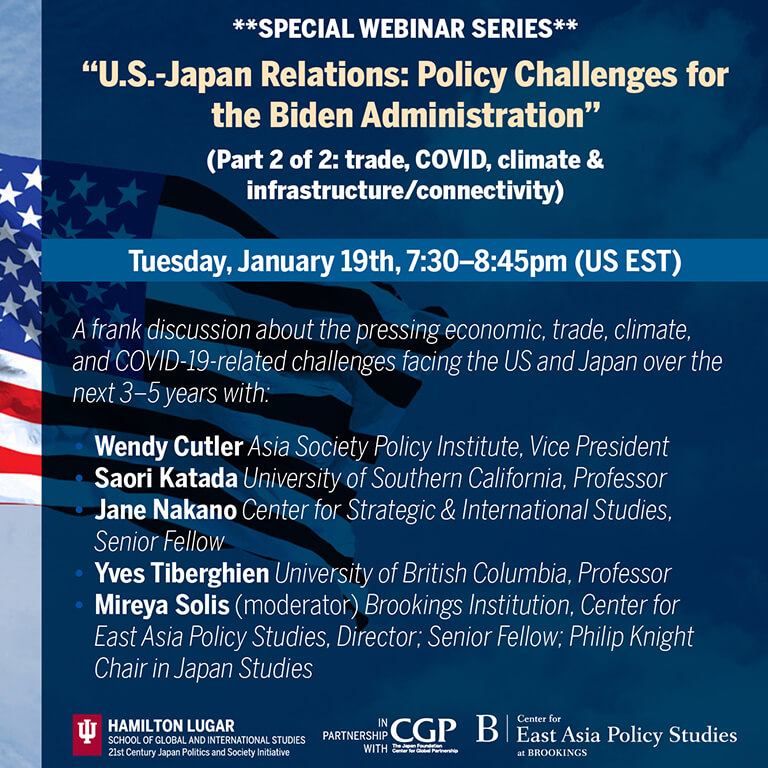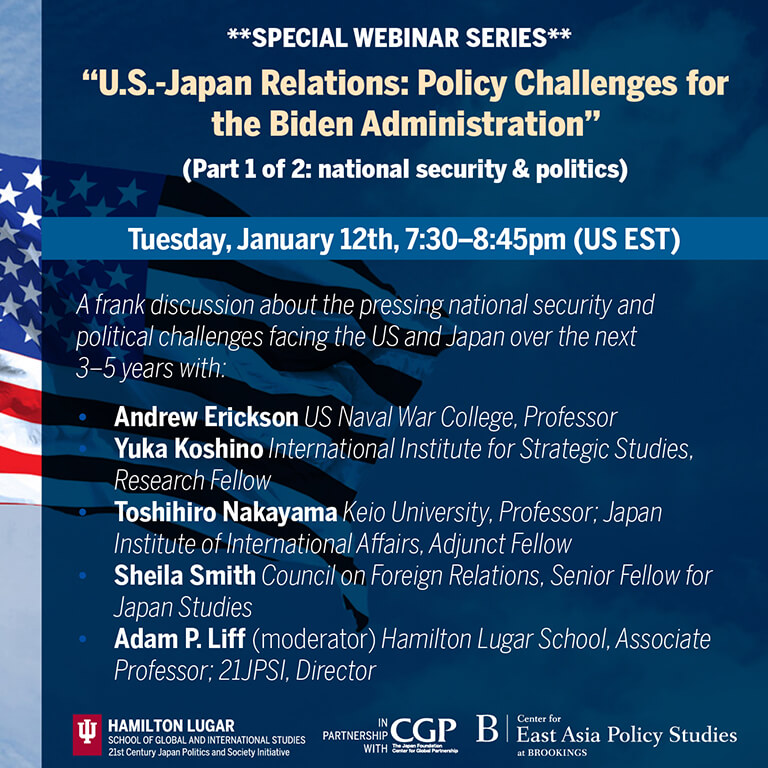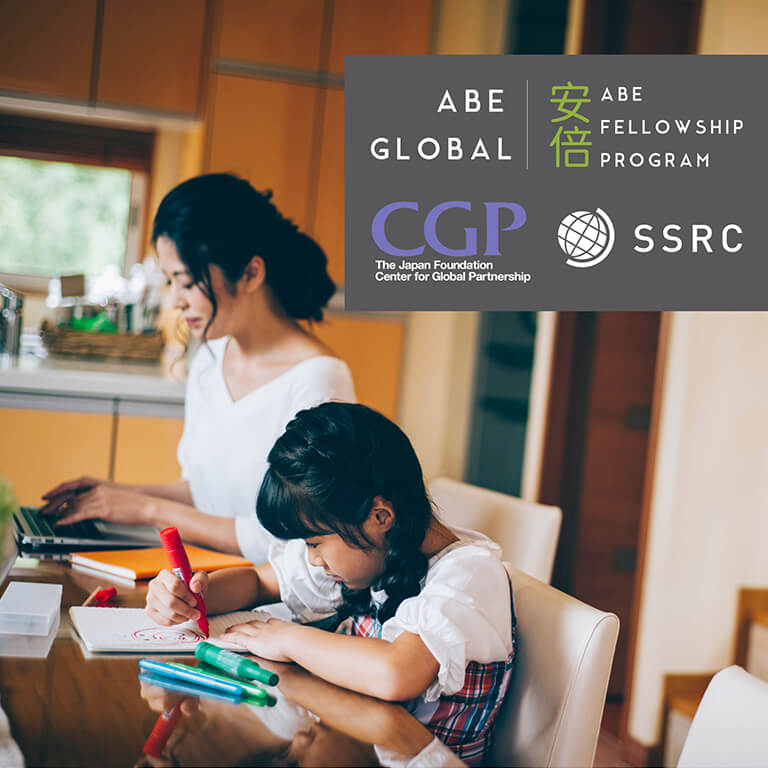Since its establishment in 2018, 21JPSI hosts several events each year, including a multidisciplinary “Japan Politics and Society” speaker series, academic manuscript workshops to support research by U.S.- and Japan-based social scientists, and public conferences and collaborative webinars to facilitate discussions about domestic and foreign policy challenges facing Japan and the United States.
Below, you can explore our past academic and policy conferences and webinars. For information on 21JPSI’s other events, please click the links above.



